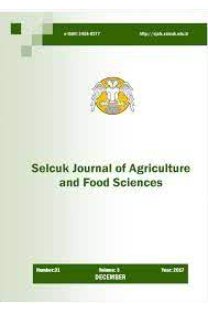The Significance of Bokashi Compost Obtained from Beneficial Microorganisms on Sustainability and Waste Disposal
The Significance of Bokashi Compost Obtained from Beneficial Microorganisms on Sustainability and Waste Disposal
Bokashi, Compost Sustainability, Waste,
- ISSN: 2458-8377
- Yayın Aralığı: Yılda 3 Sayı
- Başlangıç: 2002
The Effect of Global Warming on Migration of Butterflies
Duha Hatem AL BARAJ, Ekrem ÖGÜR
Recai ÖZCAN, Kemal TÜTÜNCÜ, Murat KARACA
Determination of Some Virus Diseases on Gerbera Plants in Antalya Province
Some Classical Methods of Vegetation Attributes Measurements in Rangelands
Ramazan ACAR, İbrahim Musa OSMAN
Seyma SADETAŞ ÖNAL, Haydar HACISEFEROĞULLARI
The Effect of Some Pre-Emergence Herbicides on Weeds and Corn Yield
Plant Viruses and Plant Growth Promoting Rhizobacteria (PGPR) Relationships: A Shiny Application
